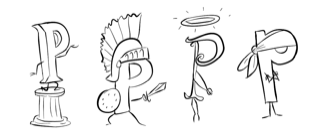While many parents, teachers, and even teens themselves may view procrastination as a weakness or a sign of being lazy, nothing could be further from the truth. Procrastination is driven by complex emotional needs that vary depending on the individual. I’ve identified four basic types of procrastinators, each with its own motivation for avoiding tasks that need to be done, and its own motivation for engaging with them as well.

The Perfectionist
The perfectionist values excellence above all and sees every task as a performance to be judged by teachers, parents, and/or peers. Any mistake, however small, could be cause for criticism or rejection. When the perfectionist is not certain a task can be done 100% correctly, without mistakes, the task will be put it off.
The Warrior
The warrior is drawn to full engagement and loves to pit him or herself against a problem or foe—as long as it is interesting or exciting, that is. The warrior feels as though survival depends on moving away from tedium toward stimulation. Tedious tasks are postponed and easily forgotten.
The Pleaser
The pleaser is motivated by personal connections. The pleaser will prioritize requests from others, even if it means putting off the tasks that they need to do. When they say yes to tasks that, in their hearts, they really didn’t want to commit to, they will wind up putting those tasks off as well.
The Rebel
The rebel values autonomy, desiring to be valued for unique character and contributions. The rebel’s core fear is being anonymous. By following orders, the rebel risks losing identity, and thus status in the tribe. To establish his or her own person, the rebel resists taking orders even when it doesn’t further personal goals.
When teens recognize their procrastination type, the stigma of “lazy” is reduced, making way for self-compassion. In my book, The Teen’s Guide to Getting Stuff Done, I outline a clear path for each procrastination type, with specific motivational tools to help them own the tasks they need to get done and meet their goals. The first tool is the The Procrastination Type Quiz, a great way to open a dialogue with the teen procrastinator client.
Book Titles: A Teen’s Guide to Getting Stuff Done
 Jennifer Shannon, LMFT, is author of The Shyness and Social Anxiety Workbook for Teens, The Anxiety Survival Guide for Teens, and Don’t Feed the Monkey Mind. She is in private practice in Santa Rosa, CA, and is a diplomate of the Academy of Cognitive Therapy.
Jennifer Shannon, LMFT, is author of The Shyness and Social Anxiety Workbook for Teens, The Anxiety Survival Guide for Teens, and Don’t Feed the Monkey Mind. She is in private practice in Santa Rosa, CA, and is a diplomate of the Academy of Cognitive Therapy.


 2024 Peace Playbook: 3 Tactics to Avoid Clashes with Your Partner
2024 Peace Playbook: 3 Tactics to Avoid Clashes with Your Partner